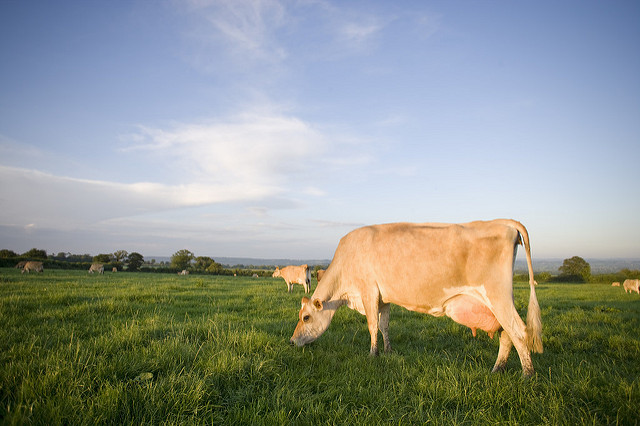



Dairy Blog: The White Elephant of Dairy
Dairy blogger Carol Lever discusses the choice of dairy products consumers have in the supermarket chillers.In the UK we’ve got used to having what seems like a limitless choice when it comes to our food purchases including our milk.
In the supermarkets chiller section we see row upon row of milk that’s standard, organic, semi, skimmed, whole fat branded versions and own brand.
We buy 80 per cent of our liquid milk in one of the main major supermarkets and after 50 years it is still number one in our shopping baskets. Although it might seem like we have choice in the milk we buy, one type you won’t find is Free Range Dairy.

At present it feels very much like the Henry Ford business model; you can have a car in any colour you want as long as it’s black. At present that’s the milk model. You can have any milk you want as long as it’s the milk the supermarket decides to give you.
A national poll by World Animal Protection conducted by YouGov in 2015 found 86 per cent of adults agreed that dairy cows should be able to graze outdoors, with 72 per cent concerned about the welfare of cows living indoors permanently, but that’s not reflected in the milk you buy.
Consumers say they want to buy Free Range milk and pay more for their milk. Farmers need consumers to pay more for their milk. So what could be the problem? The problem is in the middle.
Many supermarkets have a dedicated supply chain with their milk processed by one of the two giant processors. They pay cost of production but are happy to sell milk as a loss leader to attract customers into their stores.
Add to this a range of factors from segregation costs and keeping logistics as cost effective as possible and you can see why they want to maintain the status quo.
The last thing supermarkets and retailers want is a new milk that highlights the white elephant of dairy - how many days and nights did that cow on the milk bottle actually graze each year?
I was at a Free Range Dairy farm yesterday for spring turnout of the cows and it was a joy to behold. Anyone who sees how happy the cows are to be outside on pasture knows that no matter how good the welfare inside an intensive system is, it will never replace how much the cows love to graze in fields, hang out with their friends and social groups and just explore or rest with plenty of space underfoot.
The only way to ensure milk doesn’t come from intensive system is to impose a grazing standard that isn’t a token gesture.
Free Range Dairy’s main standard is 180 days and nights grazing on pasture which is a clear indication of whether your milk has come from a traditional dairy farm or an intensive indoor system.
Waitrose's commitment to 100 days of grazing is a step in the right direction but it doesn’t set a high enough bar if they’re really committed to giving cows the freedom to graze.
At present the allure of the intensive dairy system for supermarkets and retailers is a collection of large farms producing a standardised product that produces enough milk to easily fill a tanker.
Instead of having to pick up milk from 50 smaller traditional farms, they can pick up the same amount of milk from 6 large farms. Selling milk as a loss leader to attract consumers into your store means cutting costs via logistics is a way to recoup costs.
While this industrial style model worked well for Henry Ford and car assembly, it doesn’t mean the same principles can be applied to milk production.
The one size fits all homogenised production of most of our milk might suit retailers but is not a sustainable system that suits our cows, dairy farmers, rural communities or the people the retailers say they care about – their customers.

Carol Lever
Freelance journalist
Carol Lever is joint Director of Free Range Dairy Network Community Interest Company (CIC). The CIC works in collaboration with small independent processors, farmers and others to promote the value of pasture-based dairy farming that benefits farmers, cows and consumers. Free Range Dairy Pasture Promise™ is the only label that gives a clear assurance that milk comes from cows that enjoy the freedom to graze for at least six months of the year and for this we pay Free Range Dairy farmers a bonus on their milk.


